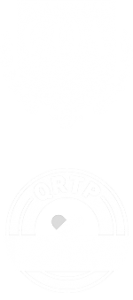World Autism Day: Our Commitment to Those We Serve
Kate Lopas, MA, BCBA, LBA, Director of Behavior Services
Today, April 2nd, marks World Autism Awareness and Acceptance Day. Established by the United Nations in 2007, this internationally recognized day is a powerful reminder of the importance of understanding, accepting, and celebrating the unique strengths of individuals on the autism spectrum (“World Autism Awareness Day 2 April”, n.d.). At Chileda, we are proud to stand with the global community, reaffirming our unwavering commitment to fostering a more welcoming and inclusive world for individuals with autism, especially the children and young adults we serve.
Why is World Autism Day So Important?
It serves as a vibrant reminder to:
Raise Awareness: We must continue to foster a deeper public understanding of autism, actively dispelling existing misconceptions that can create social stigma.
Promote Acceptance: Individuals with autism, like all people, deserve to be treated with respect, dignity, and understanding. Acceptance is the foundation for building inclusive communities.
Advocate for Support: World Autism Day motivates us to expand and strengthen networks to advance care and provide stronger support services. This collective effort is crucial to improving the lives of individuals with autism and their families.
Recognize Strengths: It’s essential to continuously celebrate the unique talents, skills, abilities, and perspectives that individuals with autism bring to our world.
The rest of this article offers a brief background on ASD and its various aspects, aiming to foster a deeper understanding of the challenges faced by individuals and families navigating this condition.
Understanding Autism Spectrum Disorder (ASD)
Autism Spectrum Disorder (ASD) is a neurodevelopmental condition that can present a range of social, cognitive, behavioral, speech, and non-verbal communication challenges (American Psychiatric Association, 2013). The Centers for Disease Control (CDC) estimates that autism affects approximately 1 in 36 children and 1 in 45 adults in the United States (“Data and Statistics on Autism Spectrum Disorder”, 2024) It’s also important to note that autism is diagnosed more frequently in boys than girls.
As the name suggests, autism is a spectrum condition. This means there is no single “type” of autism, and individuals can experience a wide range of variability and severity in their behaviors. Often, autism can co-occur with other health conditions such as gastrointestinal issues, sleep disturbances, ADHD, mental health conditions, and seizures (“Autism Symptoms”, n.d.) It’s also crucial to remember that autism is a lifelong condition, and an individual’s needs may change over time.
Profound Autism: A Need for Intensive Support
An emerging and distinct category within autism is referred to as profound autism. This is characterized by individuals with an IQ of less than 50 with limited or no verbal skills. Children and adults with profound autism require constant care and assistance with daily living tasks. They may also exhibit self-injurious behaviors or aggression, requiring intensive support to ensure their safety as well as the safety and wellbeing of their caregivers (“Profound Autism Facts”; n.d.; Hughes et al., 2023).
Diagnosing ASD: A Multifaceted Approach
Diagnosing ASD involves a comprehensive evaluation conducted by a team of healthcare professionals. This team may include pediatricians, child psychologists, psychiatrists, and neurologists. Educational specialists such as Board-Certified Behavior Analysts (BCBAs), speech, occupational, or mental health therapists also play a vital role. The diagnosis is typically based on observing difficulties in social interaction and communication, along with the presence of restricted and repetitive behaviors.
Various screening assessments to monitor an individual’s developmental and behavioral functioning are used. These assessments can include developmental and cognitive tests, evaluations of social skills and communication abilities, and sensory and motor assessments.
The Diagnostic and Statistical Manual of Mental Disorders, 5th Edition (DSM-5 and DSM-5-TR), outlines the severity of ASD based on the level of support an individual requires. These levels include:
Level 1 – Requiring Support: Individuals at this level exhibit some social and communication impairments and inflexibility in behavior. They may struggle with switching between activities and with planning and organization (“ASD levels of severity”, n.d.).
Level 2 – Requiring Substantial Support: Individuals at this level show more pronounced Level 1 characteristics and experience significant difficulty coping with change (“ASD levels of severity”, n.d.).
Level 3 – Requiring Very Substantial Support: This level is characterized by the most severe impairments in verbal and non-verbal communication, social interaction, and behavior. Individuals at this level often display significant distress in their behaviors (“ASD levels of severity”, n.d.). Profound autism falls under Level 3.
Care and Support Options
Depending on an individual’s level of diagnosis, various therapeutic interventions can be implemented to address the challenges associated with ASD. It is widely recognized that the most effective approach often involves a combination of therapies.
At Chileda, we develop individualized treatment plans and prioritize early intervention. Evidence-based practices such as Trauma-Informed ABA therapy and developmental therapies including speech and language therapy, mental health services, physical therapy, occupational therapy, music therapy, art therapy, and play therapy are used where appropriate. Our goal is to foster positive behaviors and reduce challenging ones. We teach essential skills to students across our residential, day school, Chileda Shine community services, and adult family home programs.
On this World Autism Awareness and Acceptance Day, let us all pledge to learning more and embracing individuals with autism for who they are.
To learn more about our work and how we support individuals with autism we invite you to visit our website at www.chileda.org or come and visit us at any one of our locations.
References:
American Psychiatric Association, DSM-5 Task Force. (2013). Diagnostic and statistical manual of mental disorders: DSM-5™ (5th ed.). American Psychiatric Publishing, Inc.
American Psychiatric Association. (2022). Diagnostic and statistical manual of mental disorders (5th ed., text rev.).
Autism Symptoms (n.d.). Autism Speaks. https://www.autismspeaks.org/autism-symptoms.
ASD levels of severity (n.d.). Autism Speaks. https://www.autismspeaks.org/levels-of-autism.
Centers for Disease Control and Prevention (CDC). (2024, May 16). Data and Statistics on Autism Spectrum Disorder. https://www.cdc.gov/autism/data-research/index.html
Hughes, M. M., Shaw, K. A., DiRienzo, M., Durkin, M. S., Esler, A., Hall-Lande, J., Wiggins, L., Zahorodny, W., Singer, A., & Maenner, M. J. (2023). The prevalence and characteristics of children with profound autism, 15 sites, United States, 2000-2016. Public Health Reports, 138(6), 971-980.
Profound Autism Facts (n.d.). Profound Autism Alliance. https://www.profoundautism.org/research/profound-autism-facts/
World Autism Awareness Day 2 April (n.d.). United Nations. https://www.un.org/en/observances/autism-day/background
Kate Lopas joined Chileda in 2012 as a Direct Support Professional (DSP) and has since served in a variety of roles at Chileda. Currently, she is the Director of Behavior Services. Kate holds master’s degrees in Forensic Psychology and Applied Behavior Analysis and became a Board-Certified Behavior Analyst (BCBA) and Licensed Behavior Analyst (LBA) in 2022. In her role, Kate provides expert guidance and support for individuals with autism and behavioral challenges, making a meaningful impact at Chileda.
*The information provided on this blog is for general informational purposes only and does not constitute medical or professional advice. Chileda, Inc. strives for accuracy but is not responsible for errors or omissions. Chileda Inc. disclaims any liability for any losses or damages arising from the use of this blog site.



